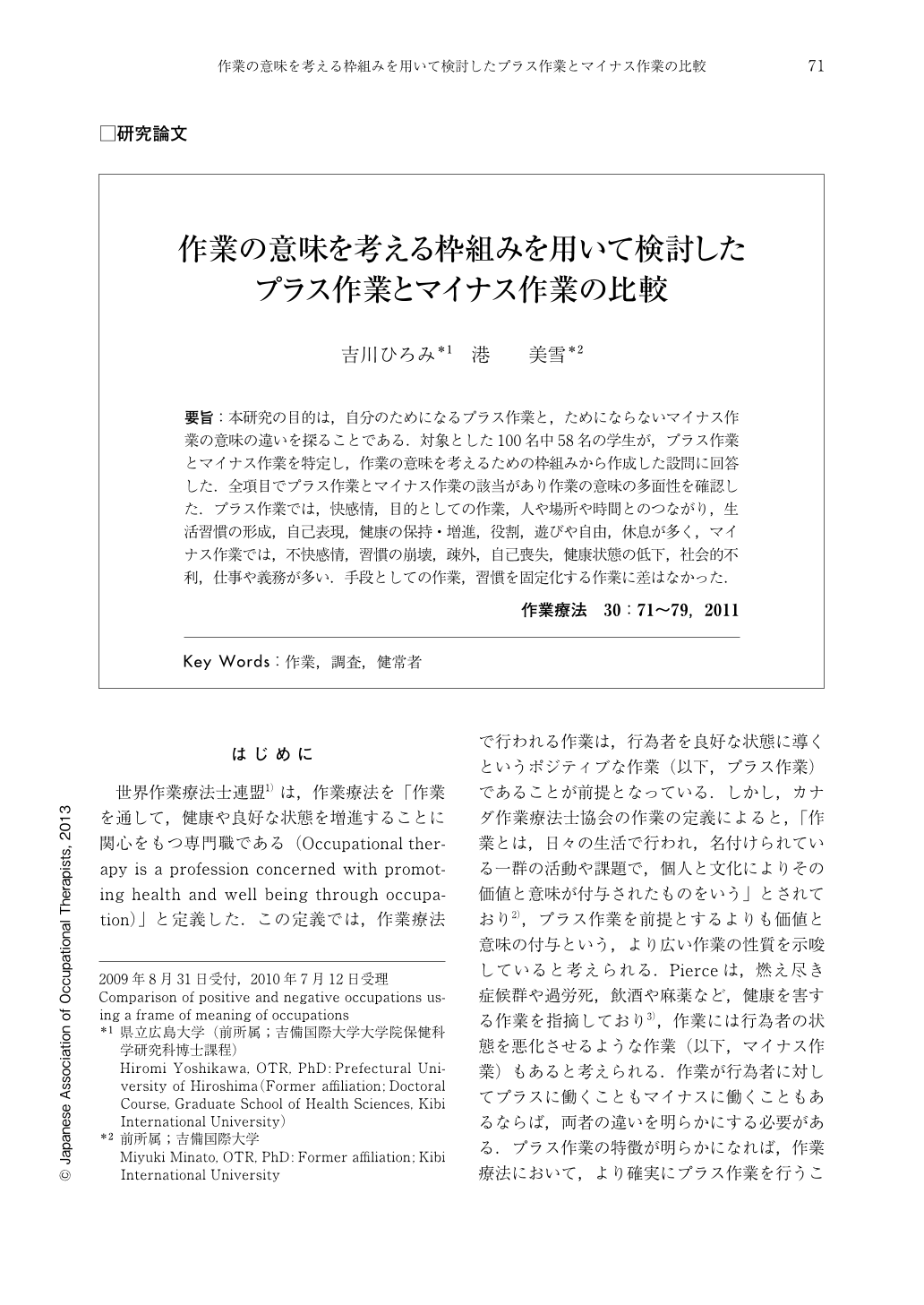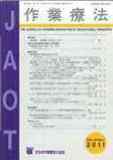Japanese
English
- 販売していません
- Abstract 文献概要
- 1ページ目 Look Inside
- 参考文献 Reference
- サイト内被引用 Cited by
要旨:本研究の目的は,自分のためになるプラス作業と,ためにならないマイナス作業の意味の違いを探ることである.対象とした100名中58名の学生が,プラス作業とマイナス作業を特定し,作業の意味を考えるための枠組みから作成した設問に回答した.全項目でプラス作業とマイナス作業の該当があり作業の意味の多面性を確認した.プラス作業では,快感情,目的としての作業,人や場所や時間とのつながり,生活習慣の形成,自己表現,健康の保持・増進,役割,遊びや自由,休息が多く,マイナス作業では,不快感情,習慣の崩壊,疎外,自己喪失,健康状態の低下,社会的不利,仕事や義務が多い.手段としての作業,習慣を固定化する作業に差はなかった.
The purpose of this study is to explore the characteristics of positive and negative occupations as perceived by university students. Fifty-eight out of 100 university students responded to a questionnaire, and they identified positive and negative occupations. Subsequently, they answered items established by the frame of meaning of occupations. Multi-dimensional characteristics emerged because all items were identified in both positive and negative occupations. Comfortable feeling when doing an occupation, occupation as a goal, connection to others, time and place, making habits, relation to identity, positive effects on health, social role, and play and rest were identified more as positive occupations than as negative occupations. Uncomfortable feeling when doing an occupation, breaking habits, sense of alienation and loss, negative effects on health, stigma, and work or duty were identified more as negative occupations than as positive occupations. Occupations as a means to an end and maintaining a routine were equal in both positive and negative occupations.

Copyright © 2011, Japanese Association of Occupational Therapists. All rights reserved.


